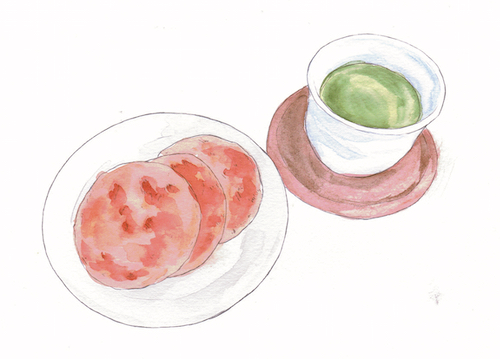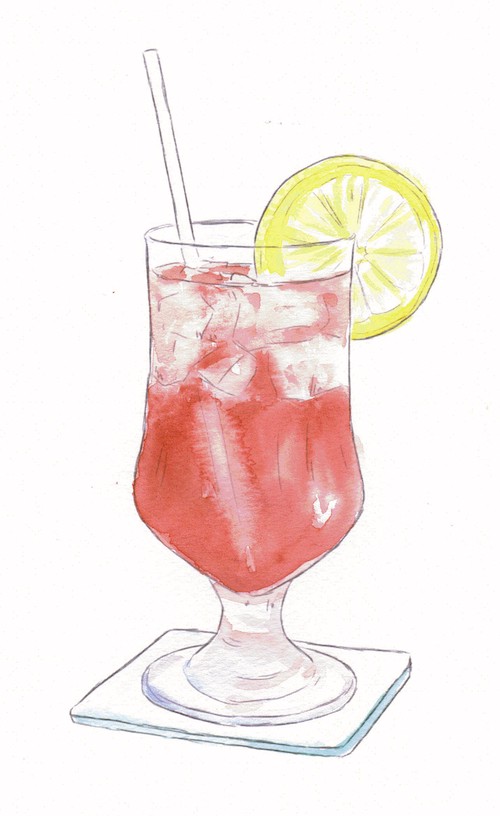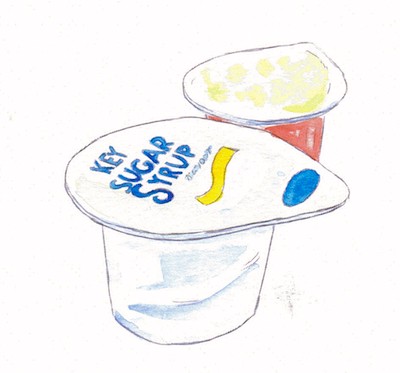
Don’t let a seemingly healthy habit feed a sugar addiction
Can we have two iced teas?”
Before Covid, we were at an American diner somewhere in Connecticut, in the middle of one of the hottest days in August. My dad and I had just finished moving me into my new apartment, and we were both thirsty and tired from the back-and-forth carrying of boxes.
Relieved to finally sit down and get a cold drink, we ordered the first thing on the menu that wasn’t water. What arrived at our table didn’t look terribly different from what we’d get in Japan — maybe the cup was a bit bigger — but we were glad to finally get something ice cold to drink.
My dad took the first sip, “Oh my God: What is this?”
“What? What’s wrong with it?” I set my cup down, afraid to drink it now.
“This tea, it’s so… sweet.”

An iced tea in the United States
It was very strange to us that an iced tea would be served sweetened. What we understood as a traditionally bitter drink that’s known for its health properties, was made to taste something like a cocktail. Not that iced tea is never consumed sweet in Japan, but it is never served pre-sweetened — sugar is an option, but never the default.
Even as I learned to always ask specifically for unsweetened iced tea at American restaurants, I would still on occasion accidentally purchase sweetened tea — I mean, you buy a bottle of tea from a brand called Pure Leaf and you’d assume it would be unsweetened — but it wasn’t.
I learned that sweet tea was more of a southern custom and what I experienced in Connecticut was something of an anomaly, but as I spent more time in the United States, it was still apparent that mass-produced iced tea for the general public was generally understood to be sweetened — labels on bottles tend to be specified as “unsweetened” rather than “sweetened”. Compared to Japan where the teas are always served plain, it was odd to me that tea would ever be served anything but straight.

The real dangers of health drinks are what goes unrealized
Tea is a well-known health drink, and rightfully so — it has been shown in studies to be rich in antioxidants, have antimicrobial properties which may improve gut health, and may even boost heart health. It’s risen in popularity in recent years, as more individuals find it to be therapeutic and beneficial to wellbeing, and, as a result, many tea-based health drinks have begun to pop up. But these health benefits are tampered with when consumed with lots of sugar — it can make them no better than soda or juice.
So this is where the problem with American sweet tea begins. It’s not so much that we shouldn’t ever enjoy a cup of sweet tea, but when many people enjoy tea, they assume it’s healthy. At least it’s not soda; tea is good for you, some might justify.
And it makes sense to follow this logic. If sweetened iced tea has always been established as the standard way to enjoy tea, then it’s hard to shake the idea that this isn’t the kind of tea they’re referring to in studies. But all tea isn’t the same: In one standard, it’s sweetened with sugar, in another standard it’s not. This isn’t a call to end sweetened tea or call people out for drinking it, as I think we should all enjoy the drinks that we love on occasion. But too many people are enjoying a version that isn’t quite as good for them as they thought.
False health foods like tea-based beverages are part of the reason why I promote home cooking over takeout: so you can control exactly what is going into your body.